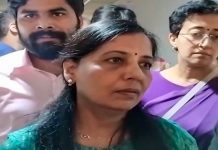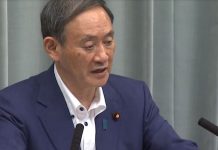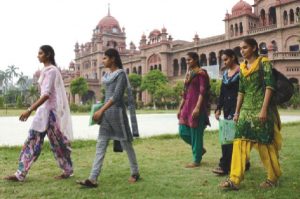 Teaching profession is considered as the oldest and the noblest profession in our country. Earlier this profession was one of the most ill-treated. What make the ill treatment particularly painful are the hypocritical expressions of reverence for the largest-of-all professions. The reverence has not prevented the country from paying teachers lower wages than peons and clerks of whom there is a superfluity in most public establishments. However, despite the current pay rise and better service conditions, the quality and standard of education at all levels has not improved much. An obligation devolves on academics to keep faith with the people, and ensure that the country receives an adequate return for the investment it makes in education. Teachers Associations should evolve a code of professional ethics for its members.
Teaching profession is considered as the oldest and the noblest profession in our country. Earlier this profession was one of the most ill-treated. What make the ill treatment particularly painful are the hypocritical expressions of reverence for the largest-of-all professions. The reverence has not prevented the country from paying teachers lower wages than peons and clerks of whom there is a superfluity in most public establishments. However, despite the current pay rise and better service conditions, the quality and standard of education at all levels has not improved much. An obligation devolves on academics to keep faith with the people, and ensure that the country receives an adequate return for the investment it makes in education. Teachers Associations should evolve a code of professional ethics for its members.
The time to revised pay structure of teachers both by the Central and the State governments should have been used for introducing at the higher stages, a national rather than a regional search for talent. In theory, there is no regionalism in the universities and in the colleges. In practice, our wandering scholars have to stop at State frontiers. More than three lakh men and women are currently teaching in our colleges and universities. The annual intake into the profession is about 12,000, which is more than fifty times annual recruitment to The All India and Central Services.
Academics, to their shame, may not deny that in the choice and assessment of faculty in our colleges and universities, the highest principles and norms have not prevailed. To the traditional practice of nepotism and communalism, we have now added a new form of favouritism, namely, of choosing one’s cronies on the basis of political ideology. Academics do not seem to have an adequate awareness of their obligation not only to choose the right men for the high tasks of teaching and research, but also to set a model for other agencies in the state to follow. If what emerges after senior academics and other experts have gone into consultation and met suitable eligible candidates, is a wangle, where else shall the people look for probity and the stress on high quality. A great deal of the mischief is due to the secrecy in which the procedures for choosing academics are shrouded. After all, a university is not a conspiracy. Academic administrators need to be reminded that what they are in-charge of is a university and not a conspiracy.
Regarding the appointment of vice chancellors in our universities, well, less said the better. Vice Chancellors are now chosen by committees consisting of distinguished but remote individuals who have scarcely any knowledge of the needs and problems of the universities concerned. The theory seems to be that the less you know about a university, the abler you are to choose the right man to head it. We can visualise and see the wisdom of the faculty being chosen by people who are not involved in the work of the university, and have no knowledge of the nature of job to which recruitment is made. Ironically, more often than not, the man is chosen first on political and extraneous considerations and the committee merely helps to promote the make believe that a free and fair search has been made. If we take time over the selection of faculty and vice chancellors, most of the unholy pressure that work effectively for short spells, will have exhausted themselves. Besides, pressures are creatures of darkness, and do not function in broad day light.That is the case of open selection procedures.
More than any other profession in a civilised society, the teacher’s profession is one that can be developed and improved only through a process of self regulation. A capacity for self regulation is one of the characteristics that should distinguish a profession from other types of employment. The medical councils and the bar councils perform this function for their membership. Teachers have not developed an agency that functions as arbiter in professional conflicts and as guardian of the academic conscience, if any. The Federation of University and College Teachers’ Organisations has not been able to function properly and effectively as an agency for collective bargaining and as the guardian of academic conscience.
It has become imperative to remind even academics, nay teachers, that a university grows through its hospitality to new ideas, and through interaction among members of the academic community, unhampered by thoughts of hierarchy. No true academic community can be other than academic. Democratisation should aim at giving every idea, whether it comes from senior or junior teachers, or from students, a chance to be seriously examined, and at promoting a sense of academic community. The open hostility of younger teachers towards their elders, which the latter do nothing to diminish, has the effect of indefinitely postponing the emergence of such an academic community.
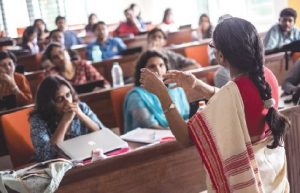 Senior teachers remain busy with all manner of preoccupations, mostly off campus, that they have little time to teach. In fact, the status of the academic is now determined by the infrequency of his visits to the classroom. A senior professor often compounds the delinquency by taking credit for the work of juniors. Consequently, the junior teachers spend much of their nervous energy on spitting the seniors, and thus they do not put their heart and soul into the job. This malaise is not an internal matter, for it affects the future of the young students who trustfully continue to flock to the universities Even the public comes to know of their internecine conflicts through large number of writ petitions filed by aggrieved teachers in various high courts. Perhaps no profession of comparable size has produced such a large crop of writ petitions as university and college teachers. The cumulative ill will and malice that these legal battles represent is of such frivolous quality that our seats of higher learning cannot be described as ivory towers. In many respects, they are so earthy and squalid.
Senior teachers remain busy with all manner of preoccupations, mostly off campus, that they have little time to teach. In fact, the status of the academic is now determined by the infrequency of his visits to the classroom. A senior professor often compounds the delinquency by taking credit for the work of juniors. Consequently, the junior teachers spend much of their nervous energy on spitting the seniors, and thus they do not put their heart and soul into the job. This malaise is not an internal matter, for it affects the future of the young students who trustfully continue to flock to the universities Even the public comes to know of their internecine conflicts through large number of writ petitions filed by aggrieved teachers in various high courts. Perhaps no profession of comparable size has produced such a large crop of writ petitions as university and college teachers. The cumulative ill will and malice that these legal battles represent is of such frivolous quality that our seats of higher learning cannot be described as ivory towers. In many respects, they are so earthy and squalid.
Teachers in our higher educational institutions must be aware that there is today much more private denunciation of teachers than is publicly expressed. There are those who blame all the ills of our education on our teachers. The indictment has often been accompanied by the suggestion that if there were less job security, there would be more efficient teaching. However, efficiency should apply to all professions and all employment. The most insecure of all our professions, that of politics, does not seem to have derived any particular efficiency or sense of responsibility and accountability from the fact of its insecurity. Pride in the fruits and product of the labour of a genuine teacher is what should distinguish between the professional from the mere employee.
The shirkers and incompetents in our colleges and universities are not difficult to identify. However, there are at least three reliable ways that could lead to a fairly reliable appraisal of a teacher. The first and foremost is self – assessment. The teacher could briefly report what he succeeded in doing, what he earnestly tried to and failed to accomplish, what were the impediments to good work, and what changes in the education system he would suggest.
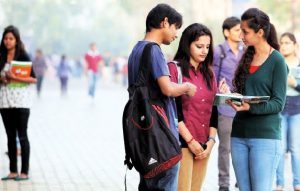 A second way of assessment is judgment by one’s own peers, which means some meaningful research work, appraisal of published work and other public evidences of one’s performance. Third and the best way is assessment by one’s own students, an operation of delicacy which is now a practice in several foreign universities, and l has lately been attempted in some colleges. It has been observed that an assessment by alumni who have just left the university or the college would perhaps be even better. Teachers organisations should face up to the need for discretion in the use of these three methods of assessment.Teachers themselves should face up to the need for such assessment and suggest ways of ensuring a high degree of accountability and probity among members of the profession, instead of shielding the incompetent and indolent, as is being done largely in several educational institutions at every level.
A second way of assessment is judgment by one’s own peers, which means some meaningful research work, appraisal of published work and other public evidences of one’s performance. Third and the best way is assessment by one’s own students, an operation of delicacy which is now a practice in several foreign universities, and l has lately been attempted in some colleges. It has been observed that an assessment by alumni who have just left the university or the college would perhaps be even better. Teachers organisations should face up to the need for discretion in the use of these three methods of assessment.Teachers themselves should face up to the need for such assessment and suggest ways of ensuring a high degree of accountability and probity among members of the profession, instead of shielding the incompetent and indolent, as is being done largely in several educational institutions at every level.
It is the bounded duty of teachers to provide the right reasons for the quality of their work and the crucial role they are expected to play in our educational advancement. These claims can have no bases other than high level of scholarship and a deep concern for the welfare of students. There is need for continuous review and assessment of the professional excellence of these high services, as the teaching profession is cluttered with innumerable people resting on withered laurels.
Regarding assessment of a teacher’s work, the fear commonly expressed is that senior teachers could be vindictive or capricious and that autocratic private managements could behave unscrupulously. These fears are justified. However, what is aimed at is to ascertain the fact of competent performance, and not an assessment of exceptional performance, meriting exceptional advancement.
Ultimately, what is of prime value is the teacher’s assessment of himself, just as the progress of the profession itself depends on its capacity for self regulation. The profession should also draw up a code of conduct for its members to mutually guarantee not only their competence but also their honour. A teacher should also make a pledge that he would not engage in any outside employment that will impair the effectiveness of professional service and permit no commercial exploitation of professional position. This is a far cry from our indignation over the application of the principle of work-based wages.
Teaching is today the largest profession in the country, and yet we need more teachers. Inevitable as the service of professional teachers are, we also need a new kind of teacher for certain new kinds of learning. The exclusiveness of the academic profession has lately not been leading the learner’s to any heights of excellence. Regarding present day college principals, well, less said the better. Their attitude is akin to what was was guyed in the famous undergraduate rhyme about Benjamin Jowett: I am the Master of this college; What I don’t know isn’t knowledge.
An educational institution is established only for the purpose of imparting education to the students. In such an institution, it is imperative for all to maintain discipline and abide by the rules and regulations that have been lawfully framed. The teachers are like foster parents who are required to look after, cultivate and guide the students in their pursuit of education and knowledge. The teachers and the institution exist for the students and not vice versa. Once this principle is kept in mind, it must follow that it becomes imperative for the teaching and other staff of an educational institution to perform their duties earnestly, and for the benefit of students. The State Legislature is empowered to enact such statutory provisions in relational institutions, from Entry XI of List II of VII th Schedule of the Constitution of India. True objective of the legislation is to provide for deep and pervasive control over educational institutions. Disputes between the management and staff of the educational institutions must be decided speedily, and without the excessive incurring of costs. The object being that the aggrieved teacher should not suffer should not suffer through the substantial litigation costs. When statutory provisions provide a procedure to do an act in a particular manner, it, should be done in that very manner or not at all. This is a salutary principle of administrative law. Empathy with the statute is necessary to understand not merely its spirit, but also its sense.
Some autocratic unscrupulous private managements such as DAV Mft, New Delhi, and SGPC Punjab consider educational institutions as their personal fiefdom like a syndicate All this has happened due to ignorance, apathy, passivity, inaction and connivance of the concerned authorities who merely act as mute spectators to The detriment of teachers. In several judgments, the Apex court has held that a society does not acquire a corporate status. College being affiliated to university is bound by provisions of Act with its attendant consequences for non compliance. As responsible officer of Court and important adjunct of administration of justice, lawyer undoubtedly owes duty to Court as well as to opposite party. A lawyer has to be fair to ensure that justice is done in accordance with law. He demeans himself if he acts merely as mouthpiece of his client.
Men in authority viz quasi-literate politicians, conceited braggart bureaucrats and sycophant vice chancellors, who fancy that they have infallible ways of measuring academic competence and those in the teaching profession who behave as they are a law unto themselves, have one thing in common, namely, ignorance of what education is about. But currently, they seem to have inherited the earth. A university grows through its hospitality to new ideas, and through interaction among members of the academic community, unhampered by thoughts of hierarchy. Unfortunately, teachers at all level are busy building their little empires of petty power, or fighting their little class war. The failure is not of a few individuals or a failure of character, but a failure of intelligence. We need learned men, who have triumphed over self seeking, to devise for us a new political style. As a teacher with deep interest in critical pedagogy, I believe that we have to rethink education — the way we grow up, see the world and engage with it. I am referring to education as some sort of politico-ethical consciousness. The education that seeks to liberate us from the chains of domination with the creative role of concerned citizens and organic public intellectuals as educators. With the liberating education, we would demand civility, sanity and intellectual honesty.
letters@tehelka.com








